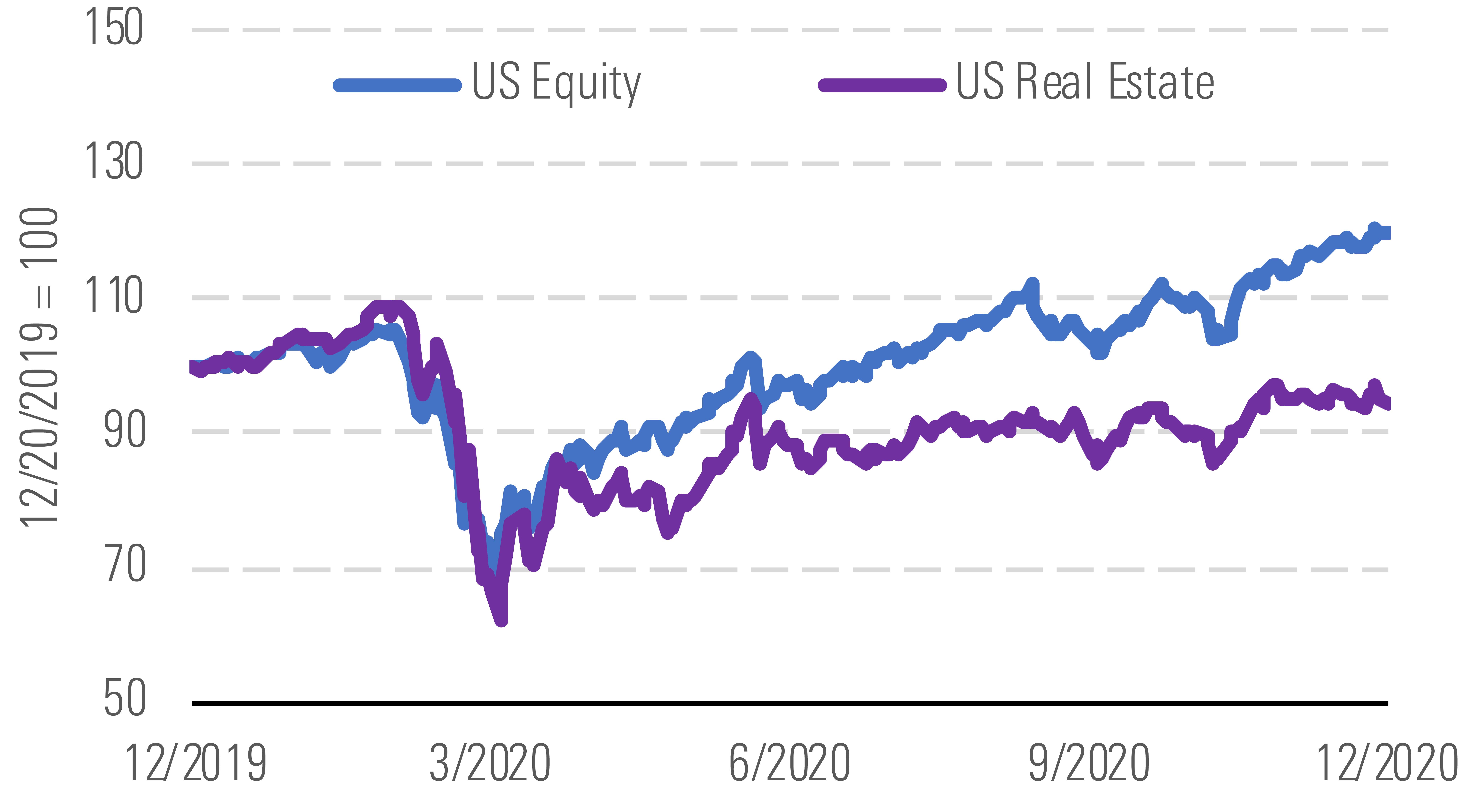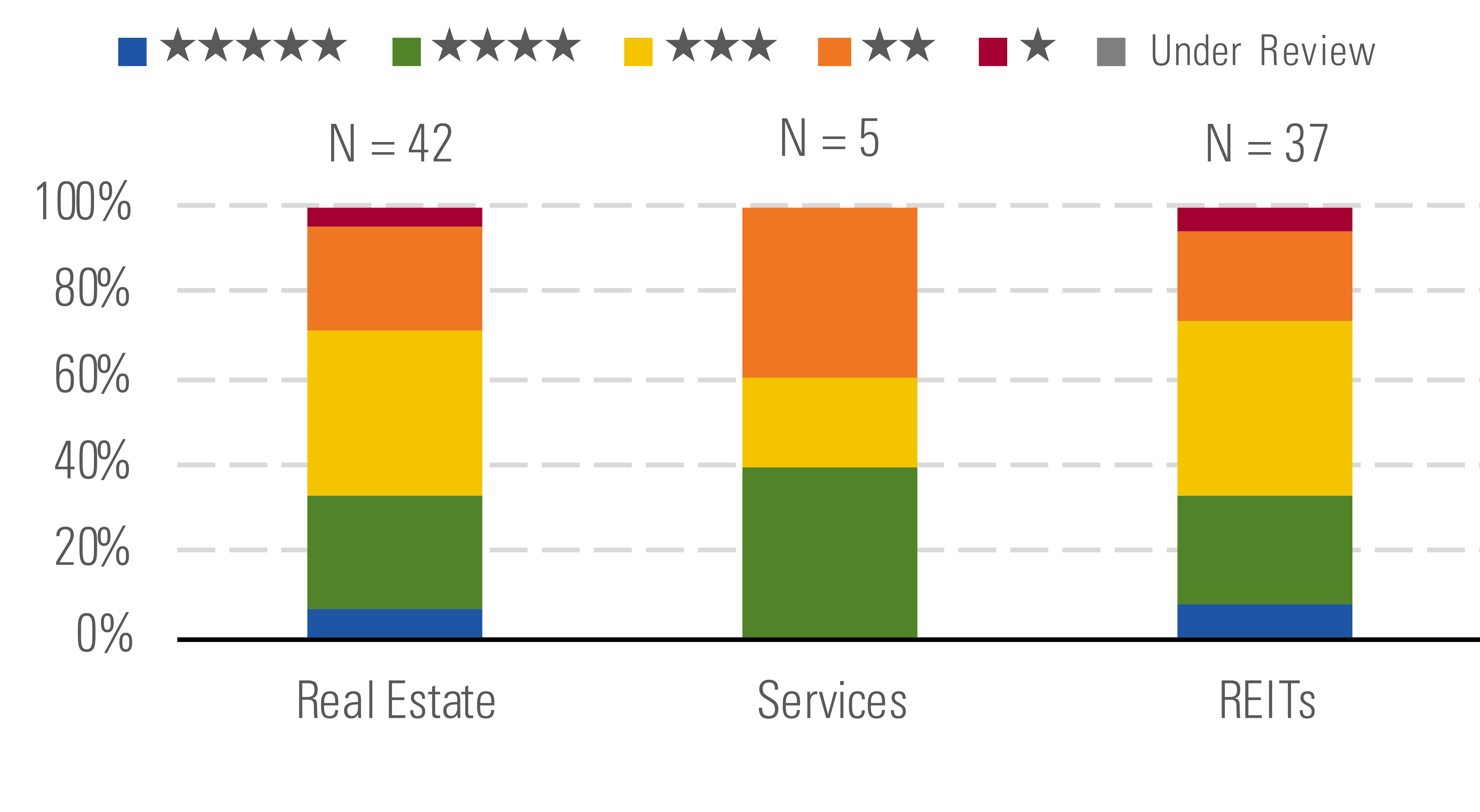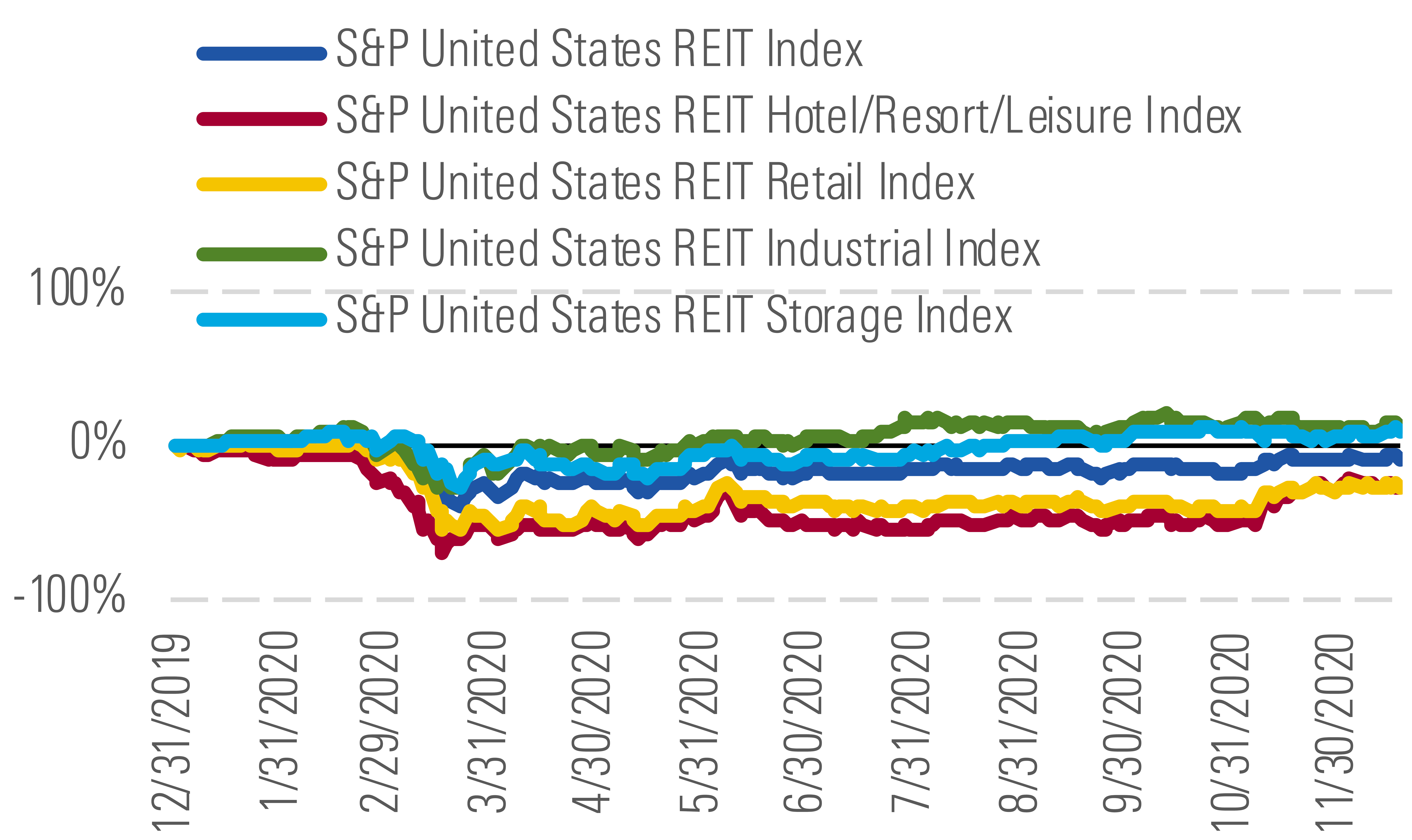We Expect Malls and Hotels to Rebound
We believe most REITs will continue to pay dividends, making their increased yields attractive to investors.
The Morningstar US Real Estate Index fell 6.4% over the trailing 12 months and is underperforming the broader U.S. equity market by 25.8% as the sector has not shown the same recovery during the pandemic. However, we have seen significant divergence in real estate performance by subsector.

Real estate is down and has underperformed the U.S. equity index - Morningstar
The real estate sector is currently trading at a significant discount. Our coverage currently trades at a 9% discount to our estimate of intrinsic value compared with our total U.S. coverage trading at a 6% premium to our fair value estimates on average at the end of the fourth quarter. Currently, 7% of our real estate coverage trades at 5-star ratings, and 26% trades at 4 stars, with only 29% of the total sector trading in either a 1- or 2-star range.

4-star and 5-star companies currently represent about 30% of the sector - Morningstar
The average dividend for real estate firms is higher than the rest of our coverage. To receive tax-free status, REITs are required to pay out most of their net income as dividends to shareholders. These companies are frequently included in portfolios of income-oriented investors. As a result of the recent equity sell-off, dividend yields have dramatically increased. We currently believe that most REITs will continue to pay their dividends, making these high yields very attractive to investors. We have seen significant bifurcation in the performance of the different real estate subsectors. Sectors that are more sensitive to the impacts of the coronavirus fallout have seen significantly worse total return performance year to date.

Real estate subsectors most affected by the virus have underperformed - Morningstar
Global travel restrictions and consumers canceling vacation plans have caused massive occupancy declines for the hotel industry. Malls across the country have been closed for several months, and many retailers are struggling as consumers have shifted many of their shopping habits online. Both the hotel and the mall sectors have underperformed the broader real estate sector. Meanwhile, while the industrial and self-storage sectors declined initially, they have outperformed the broader real estate sector and with a positive return year to date in 2020. These sectors are outperforming, as they should be relatively insulated from the worst effects of the virus on the global economy. That said, we currently see some of the best values among the hardest-hit subsectors. Given our long-term outlook, we believe that the hotel and mall sectors will rebound and see years of strong growth once the global crisis is over.
Top Picks
Simon Property Group SPG Star Rating: ★★★★★ Economic Moat Rating: None Fair Value Estimate: $152 Fair Value Uncertainty: High
Class A malls continue to outperform other forms of brick-and-mortar retail. The stock has sold off significantly over the past few months as fears of the coronavirus impact on brick-and-mortar retail sales grew among investors. Simon has long-term leases with tenants, so it should continue to receive rent even during the current crisis. While many weaker retailers may go bankrupt due to the lack of sales, we think Simon's attractive portfolio will be able to quickly fill any vacancies. Additionally, Simon recently acquired Class A mall competitor Taubman Centers, which should increase cash flows and provide more leverage when negotiating with tenants.
Regency Centers REG Star Rating: ★★★★ Economic Moat Rating: None Fair Value Estimate: $62 Fair Value Uncertainty: Medium
Regency's portfolio is filled with high-quality assets in population-dense, affluent markets. The company focuses on owning grocery-anchored centers, with over 80% of its properties featuring a grocery anchor and grocery stores representing slightly more than 20% of annual base rent. Regency's grocery anchors are strong draws to the centers, as they produce sales per square foot well above the national average and are very healthy with low occupancy costs. Grocery has been one of the retail categories that has seen sales growth increase during the pandemic, driving consistent business to the rest of Regency's portfolio, which should maintain high occupancies.
Ventas VTR Star Rating: ★★★★ Economic Moat Rating: None Fair Value Estimate: $57 Fair Value Uncertainty: Medium
Ventas owns high-quality assets in the senior housing, medical office, and life science fields. While the company's medical office and life science portfolios should be relatively unaffected by the coronavirus outbreak, the senior housing portfolio is likely to experience a very significant impact to occupancies, as the virus has the highest lethality rate among senior citizens. However, while the virus will negatively affect net operating income for the industry in 2020 and potentially 2021, the industry should see strong long-term growth from the coming demographic wave of baby boomers aging into senior housing facilities.

/s3.amazonaws.com/arc-authors/morningstar/b9459b20-3908-4448-a36c-b728946ddbe5.jpg)

